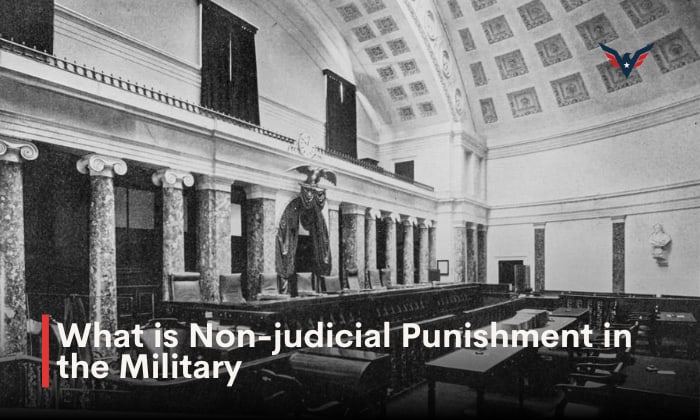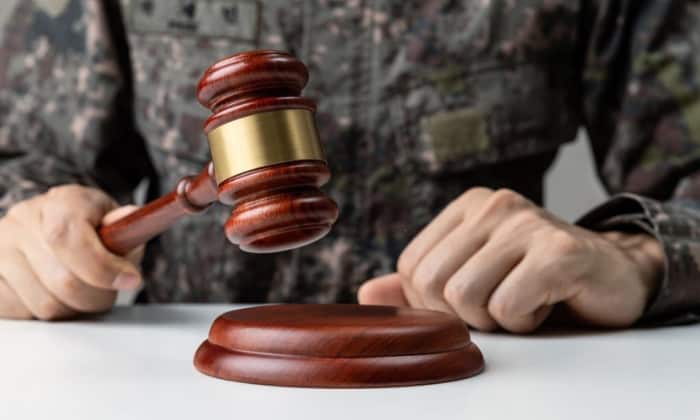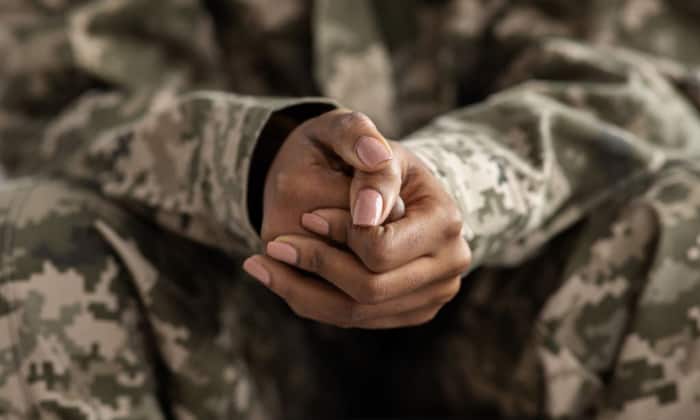What is non-judicial punishment in the military? NJP, short for non-judicial punishment, is a disciplinary action used in the military to handle inappropriate behavior by service members.
Discover the ins and outs of non-judicial punishment in the military with this informative article. From its purpose to the implications and process involved, we’ll explore everything you need to know about this disciplinary action.
Table of Contents
Overview of Non-judicial Punishment
1. Definition: NJP in the Military Meaning
Non-judicial punishment (NJP) is a form of discipline intended to address infractions of conduct standards that are not severe enough to bring the courts martial.
To put it simply, it gives commanding officers the authority to administer disciplinary actionsfor minor offense without the need to involve a judge. Within the ranks of the military, the NJP works to ensure that there is order, efficiency, and discipline at all times.
The term “Non-Judicial Punishment” (NJP) goes by a few different names, including “Article 15” or “Office Hours,” “Ninja Punch” among the Marine Corps, and “Captain’s Mast Punishments” in the Navy.
2. Purpose
The military uses NJP to keep the troops in line and maintain their morale so the military runs smoothly.
It does so by giving commanders an effective tool for enforcing discipline, discouraging further wrongdoing, and rehabilitating service members.
NJP aims to prevent the more severe repercussions of a court-martial without sacrificing discipline.
It’s an option for dealing with minor infractions that don’t require as much time or effort but still get results. This permits the military judicial system to concentrate its limited resources on the most serious crimes.
Military Regulations on Non-judicial Punishment
The US military’s regulations on NJP are in the Manual for Courts-Martial (MCM), which lays out the rules and processes for carrying them out.
Part V of the MCM, entitled “Non-judicial Punishment,” offers extensive rules for the use, procedure, and boundaries of NJP.
It discusses issues including who has the power to impose NJP, the rights of the accused, how NJP processes are conducted, and what kinds of sanctions can be imposed.
1. Minor Offenses in Military
Generally, a “minor offense” is any infraction where the maximum penalty is less than 30 days in detention, as determined by a summary court-martial.
This decision should be based on the nature of the offense and the surrounding circumstances, as emphasized by UCMJ’s Article 15 and Part V of the Manual for Courts-Martial.
Two main categories of wrongdoing are addressed by military law:
- Crimes or criminal acts – The military uses court-martial hearings to deal with serious crimes like rape, drug abuse, fraud offenses, murder, aiding the enemy, violent assault, and robbery.
- Disciplinary infractions – Meanwhile, disobedience of military orders, petty theft, rudeness toward superiors, sleeping on watch, being late to duty, and traffic offenses are all examples of infractions that can lead to disciplinary actions.
Non-judicial punishment is frequently used for dealing with offenses of this nature.
2. Who Imposes a Non-Judicial Punishment?
A non-judicial punishment can only be administered by a commanding officer in the Air Force and the Army, respectively.
Meanwhile, in both the Marine Corps and the Navy, an “officer in charge” has the authority to issue an NJP. This “officer in charge” refers to an officer who has been designated as such by another naval officer who possesses general court-martial authority.
3. NJP – Rights of the Accused
The accused service member is guaranteed due process in the military’s non-judicial punishment procedure. The accused has several protections during NJP:
- Notification /Information
- Right to remain silent.
- Right to counsel.
- Right to Present Evidence.
- Right to Cross-Examine Prosecution Witnesses.
- Right to Mitigation.
Non-judicial Punishment Process
Article 15 of the UCMJ outlines the procedure for non-judicial punishment in the military as follows:
- The accused receives a copy of the charges and is given a chance to respond.
- The commander conducts an initial investigation to determine if the circumstances call for non-judicial punishment.
- A charge sheet will be issued if the commander decides there is enough evidence to warrant one.
- The accused is given a chance to look over the charges against them and submit their evidence in their defense.
- Afterward, the commander holds a trial to determine the accused’s guilt or innocence
- .The commander decides on the appropriate penalty if the accused is proven guilty.
The minimum or maximum Article 15 punishment depends on the commander’s rank and the specific violation.
- The accused may appeal the decision to the next higher-ranking commander if they so choose.
Non-judicial Punishment Examples
The following are examples of sanctions imposed on servicemen or women who committed minor offenses. These may vary depending on the branch or the commanding officer.
- Admonition or reprimand.
- Correctional custody.
- Removal of access or passes.
- Extra duty (for 2 weeks at most)
- Limitation to certain parameters.
- Compensation is withheld (for no more than 2 months).
Non-judicial sanctions can vary in severity based on the branch of service and the rank of the offender. For instance, here’s the punishment chart for the Marine Corps and Navy.
Consequences and Implications
Apart from the imposed punishments such as loss of pay, possible restrictions, extra duty, and reprimand, NJP can also have long-term implications for the service member’s career.
For example, a history of NJP can make it more difficult to get a security clearance or to be promoted. It can also damage the service member’s reputation and make it difficult to get a job in the civilian sector after leaving the military.
Can a service member appeal the decision of the Article 15 proceeding?
If found guilty at an Article 15 hearing, a service member can appeal the decision to the commander. The appeal must be filed no later than five days after the conclusion of your hearing.
However, it is often in the best interest of service members facing Article 15 punishment to accept the sentence imposed by the commander rather than appealing to a court-martial. A court-martial conviction usually results in a punishment that is significantly more severe than what would be given in an Article 15 hearing.
Will a guilty verdict at an Article 15 hearing be filed in the military records?
A guilty verdict in an Article 15 hearing will be recorded in the military file. However, it will also be expunged from your record when two years have passed.
A military member’s civilian record will not reflect an NJP because it is not a criminal conviction.
Conclusion
Learning what is non-judicial punishment in the military is important for the upkeep of military discipline and order. The military’s readiness, standards, and culture of accountability are all bolstered by NJP’s expedited disciplinary procedure.
Although NJP may be implemented slightly differently by each service, its goal remains the same. That is, ensuring that all members respect and preserve the rules and ethos of the military.

I am Everett Bledsoe, taking on the responsibility of content producer for The Soldiers Project. My purpose in this project is to give honest reviews on the gear utilized and tested over time. Of course, you cannot go wrong when checking out our package of information and guide, too, as they come from reliable sources and years of experience.







